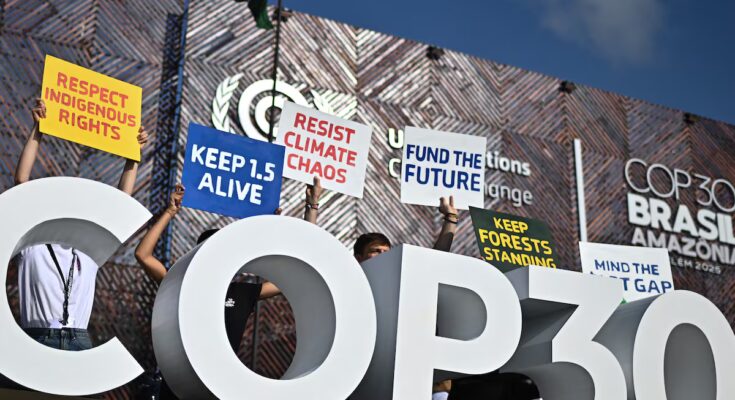“It is time to impose a new defeat on the deniers,” Brazilian President Luiz Inácio Lula da Silva said Monday at the opening of the COP30 climate summit in the Amazon city of Belém. In his speech before the plenary session of this international conference, the president directly highlighted the misinformation and social media algorithms that spread hoaxes against scientific evidence at a time when warming impacts every corner of the planet. This Wednesday, a dozen countries joined together in an alliance against the disinformation on which denialism is based and which has taken root in many centers of power, starting with the White House.
Brazil, Canada, Chile, Denmark, Finland, France, Germany, Spain, Sweden and Uruguay signed a statement, also sponsored by the United Nations and UNESCO, showing their concern about “the growing impact of misinformation, misinformation, denialism, deliberate attacks against environmental journalists, advocates, scientists, researchers and other public voices, and other tactics used to undermine the integrity of climate change information.” They warn that these practices “diminish public understanding, delay urgent action, and threaten global climate response and social stability.”
The signatories pledge to finance projects that counter these practices – Brazil has already contributed one million dollars to this initiative – and to “promote informed and inclusive climate action” with “equitable access to accurate, consistent, evidence-based and understandable information on climate change”. Additionally, ask tech companies to “evaluate” whether the design of their algorithms contributes “to undermining the integrity of the climate information ecosystem.” Furthermore, they call on the private sector at large to ensure “transparent and responsible advertising practices that respect human rights that strengthen the integrity of climate change information and support trustworthy reporting and journalism.”
This declaration, open for membership by more countries, is the result of the Global Initiative for Integrity of Climate Change Information. As a result of this project, a special fund was launched in June to finance initiatives which received 447 proposals from almost 100 countries. This Wednesday’s statement urges all nations to contribute to this fund. “Growing threats to information integrity represent one of the crucial challenges of our time, weakening the foundations of public debate and public trust and undermining the ability of societies to build collective solutions,” the statement summarizes.
Just this Wednesday, the organization ClientEarth, focused on the use of law as a form of environmental struggle, presented a report at the climate summit in line with the declaration signed by those dozen countries. The study warns that “platforms prioritize, amplify and incentivize climate misinformation.” This means that they do not comply with, for example, the “obligations of the EU Digital Services Law”.
“Climate misinformation is being used to hinder climate action,” ClientEarth further warns, targeting fossil fuel companies and their related companies for their use of “sophisticated tactics to undermine decades of work to build consensus and drive action at international, national and local levels.” They are joined by “other actors” who “simply seek to benefit from the outrage economy.” “In the short term, climate misinformation and misinformation confront citizens with the impacts of extreme weather caused or exacerbated by climate change,” this organization notes. “In the long term, they undermine public trust and political will to take the actions urgently needed to prevent the worst impacts of climate change,” the study concludes.



